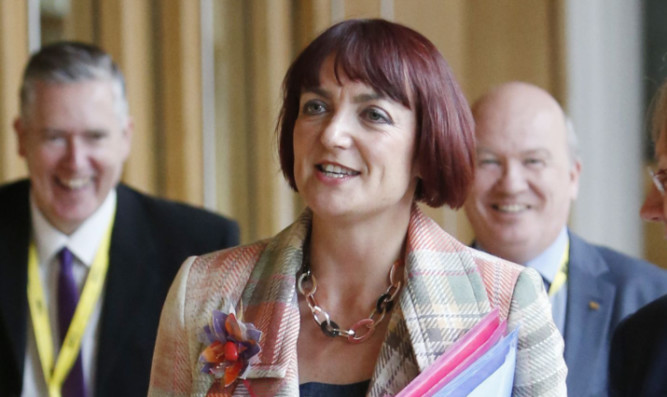One of the biggest disappointments of devolution is the failure of successive Scottish governments to improve education standards.
In particular, the attainment gap between rich and poor children surely a key concern of any administration let alone our left-leaning regimes has been allowed to grow bigger and bigger, to a scale where it shames a wealthy country like Scotland.
Last year, a damning study found that the poor’s prospects were blighted from an early age thanks to their low achievement at school. In early secondary school, only 28% of children from poorer families were performing well in numeracy, compared with 56% of those from advantaged areas, according to the Joseph Rowntree Foundation’s survey, which was produced by Strathclyde University.
After leaving school, poorer children were three times as likely to be unemployed and twice as likely to work only part-time.
The then education secretary Mike Russell responded to the report by saying that “substantial sums” were being spent and progress was being made in closing the gap, but there is no evidence to support his latter claim.
Now we have a new education minister, Angela Constance and a new inquiry has been set up, promising to explore whether enough is being done to ensure underprivileged kids get a good start in life.
The minister has said she wants to make this a priority and the convenor of the education committee, which is conducting the inquiry, says he will hold the government to account. But even as they speak, hearts will be sinking all over Scotland in anticipation of yet another Scottish Nationalist whitewash.
Although the education committee is cross-party, it has a majority of SNP members, like all Holyrood committees, and an SNP convener, Stewart Maxwell. The idea that this list MSP, not known as a man with a mind of his own, will rock his party’s education boat is a joke.
He will do exactly what he is told by his Nationalist bosses, and so will the other four party members of the committee. They say they will take all year to hear submissions from teachers and parents and “encourage public discussion”. Then, if the SNP’s past eight years in government are anything to go by, they will do nothing.
Education is a wholly devolved matter and Scottish ministers alone are responsible for education policy and education spending. They have no one but themselves to blame for the dire situation in which a Scottish child’s aspirations are curtailed by accident of birth.
Maxwell said his committee will make a “positive contribution” to the debate and help every pupil fulfil their potential, but how many times have we heard such platitudes from parliamentarians?
The committee will look at how parents and guardians can work with schools to raise attainment, and it will also investigate the role of the private sector and the “third sector” (charities) in boosting performance.
It asks: “Has greater parental involvement in school education through the Parental Involvement Act (2006) led to an improvement in pupil attainment?”
But we know the answer to that is “no”. Apart from sounding like it’s passing the buck (why focus on parents, the private sector and charities, none of which have much say in how schools are run?), the committee has already limited its scope.
The Holyrood committee system was designed to scrutinise the government of the day, but single issue nationalism, and the majority to enforce it, has made the process toothless. Conveners like Maxwell are mere puppets, their every word monitored from above and even their press releases issued by party press officers.
Low attainment is not an intractable problem; you are not condemned by your background if you live in London or Manchester, where the most deprived communities now have access to the best schools and the best teachers through the academy scheme, engineered by forward thinking British ministers.
And both Jim Murphy and Ruth Davidson, Scottish Labour and Conservative leaders, have vowed to break the cycle of educational disadvantage here.
But the real and only business of the current Scottish Government is to pursue constitutional change. Anything else, such as children’s well-being, is merely a distraction, worthy only of superficial attention and a second-rate party apparatchik.
